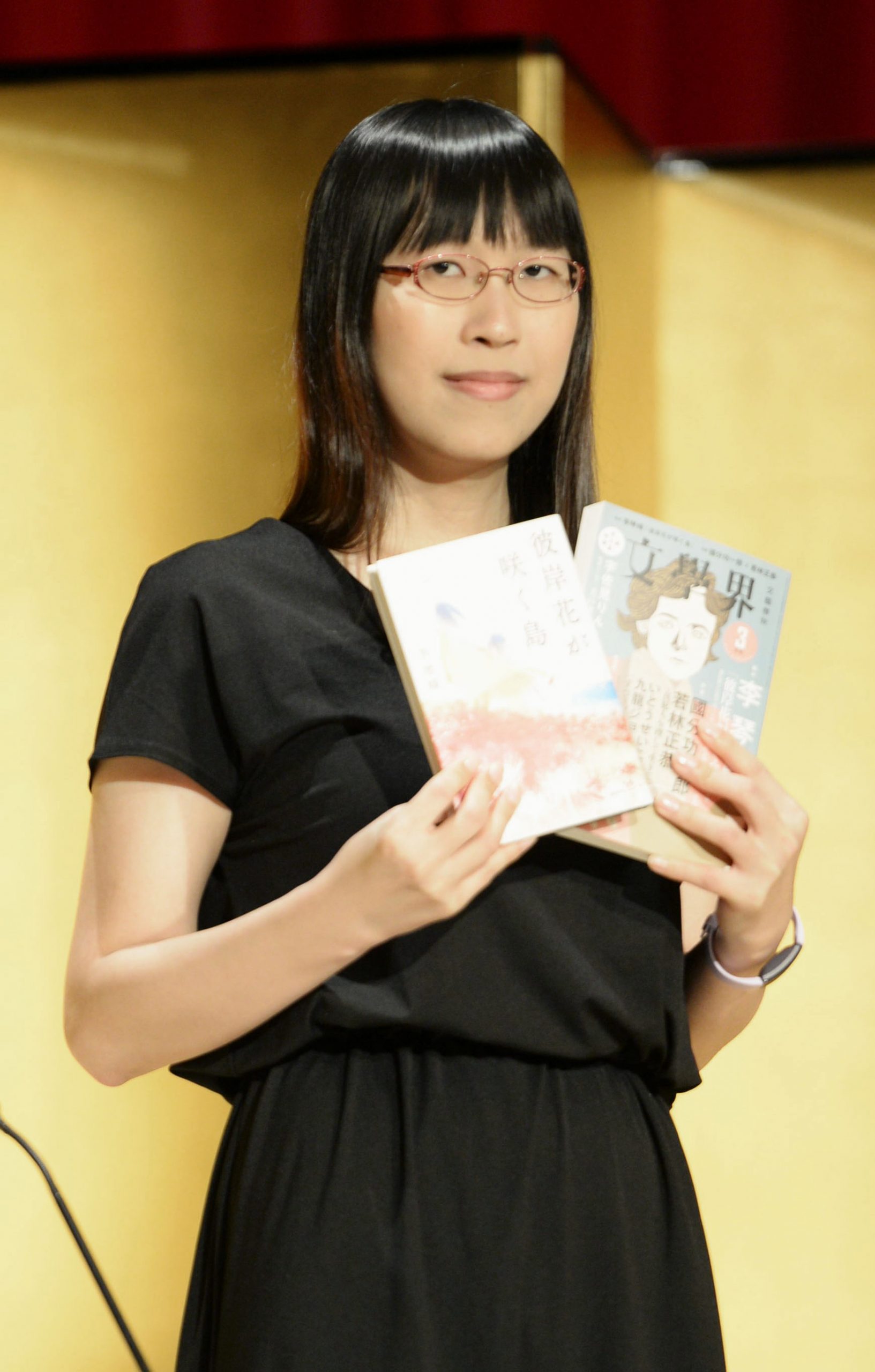Guide to Japan's top literary awards: the Akutagawa Prize and the Naoki Prize.
Editor's Notes: Prestigious Japanese Literature: A Guide To The Akutagawa And Naoki Prizes has published today. This topic is important because it provides a comprehensive guide to two of the most prestigious literary awards in Japan, the Akutagawa Prize and the Naoki Prize.
After through analysis, digging information, we made "Prestigious Japanese Literature: A Guide To The Akutagawa And Naoki Prizes" guide to help target audience make the right decision.
Key differences or Key takeaways:
| Akutagawa Prize | Naoki Prize |
|---|---|
| Awarded to a writer of a short story or stories | Awarded to a writer of a popular novel or novels |
| Established in 1935 | Established in 1935 |
| Named after the famous Japanese writer Ryunosuke Akutagawa | Named after the famous Japanese writer Sanjugo Naoki |
Main article topics:
- Introduction to the Akutagawa and Naoki Prizes
- History of the Akutagawa and Naoki Prizes
- Selection process for the Akutagawa and Naoki Prizes
- Past winners of the Akutagawa and Naoki Prizes
- Impact of the Akutagawa and Naoki Prizes on Japanese literature
FAQ
This comprehensive guide to the renowned Akutagawa and Naoki Prizes sheds light on frequently asked questions regarding Japan's prestigious literary landscape.

The Oscar – The Most Prestigious Award in the Entertainment Industry - Source americahouse.md
Question 1: What are the fundamental criteria for winning the Akutagawa Prize?
The Akutagawa Prize, awarded to emerging authors, honors literary excellence in works that showcase uniqueness, artistry, and a fresh perspective on the human condition.
Question 2: How does the selection process for the Naoki Prize differ?
The Naoki Prize recognizes outstanding popular literature and is judged based on entertainment value, relatability, and accessibility to a wider audience.
Question 3: Are there any notable trends in the works that have won the Akutagawa Prize?
Contemporary Akutagawa Prize-winning literature often explores themes of social isolation, urban life, and the complexities of human relationships.
Question 4: What impact have the Akutagawa and Naoki Prizes had on Japanese literature?
These prestigious awards have played a pivotal role in shaping Japanese literature, fostering literary talent, and broadening the readership for exceptional works.
Question 5: How can readers gain access to the winning works of the Akutagawa and Naoki Prizes?
Winning works are typically published in literary magazines, anthologies, and widely distributed in bookstores and libraries.
Question 6: What is the significance of the Akutagawa and Naoki Prizes within the context of world literature?
These prizes offer a valuable lens into contemporary Japanese literature, providing insights into social, cultural, and aesthetic aspects of modern Japan.
As the literary world continues to evolve, the Akutagawa and Naoki Prizes remain cornerstones of Japanese literature, recognizing and honoring the enduring power of great storytelling.
Tune in for the next installment of our guide, where we delve into the diverse range of literary works that have graced the pages of the Akutagawa and Naoki Prize annals.
Tips on Prestigious Japanese Literature: A Guide to the Akutagawa and Naoki Prizes
Delve into the intricacies of prestigious Japanese literature with these essential tips that will guide you through the renowned Akutagawa and Naoki Prizes Prestigious Japanese Literature: A Guide To The Akutagawa And Naoki Prizes.
Tip 1: Understand the Historical Significance: These prizes have a long and storied history, dating back to 1935. The Akutagawa Prize recognizes emerging literary talent, while the Naoki Prize honors popular fiction. Understanding their history provides depth to your appreciation.
Tip 2: Explore the Literary Landscape: Familiarize yourself with the works of notable Akutagawa and Naoki Prize winners. Read widely across genres and styles to grasp the diversity and richness of Japanese literature.
Tip 3: Pay Attention to Literary Devices: The prizes often reward works that showcase exceptional use of literary techniques, such as symbolism, imagery, and narrative structure. Be attentive to these elements when reading nominated or winning pieces.
Tip 4: Consider Social and Cultural Context: Japanese literature is deeply influenced by its social and cultural background. Understanding the historical and contemporary context in which the works are written enhances your comprehension and appreciation.
Tip 5: Engage with Japanese Perspectives: To fully grasp the nuances of Japanese literature, engage with Japanese perspectives on literature, culture, and society. Read interviews, attend lectures, and connect with Japanese literary enthusiasts.
These tips will guide you as you explore the captivating world of prestigious Japanese literature. Immerse yourself in its depths, embrace its complexities, and discover the profound insights it offers into the human experience.
Prestigious Japanese Literature: A Guide To The Akutagawa And Naoki Prizes
The Akutagawa and Naoki Prizes are two of the most prestigious awards in Japanese literature. Awarded annually, they recognize outstanding achievement in fiction and popular literature, respectively. These prizes play a significant role in shaping the contemporary Japanese literary landscape. Let's explore six key aspects of these prestigious awards:

Taiwan-born Writer Li Kotomi Wins Prestigious Akutagawa Prize 006 - Source japan-forward.com
- Renowned History: Established in 1935, the Akutagawa Prize holds a legacy of nearly nine decades, while the Naoki Prize, established in 1949, has a rich history spanning over seven decades.
- Literary Excellence: The Akutagawa Prize is awarded to emerging authors for exceptional works of pure literature, highlighting artistic merit and originality.
- Popular Appeal: The Naoki Prize recognizes popular fiction that resonates with a broad audience, often featuring compelling narratives and relatable characters.
- Cultural Significance: Both prizes contribute to the vibrancy of Japanese culture by fostering literary talent and showcasing diverse voices.
- Career Catalyst: Winning either prize serves as a major career boost for authors, bringing recognition, increased readership, and opportunities for further literary endeavors.
- Literary Diversity: The awards honor a wide range of literary styles and genres, reflecting the diversity and evolution of Japanese literature.
The Akutagawa and Naoki Prizes continue to play a crucial role in recognizing and nurturing Japanese literary excellence. They not only celebrate the achievements of individual authors but also contribute to the overall health and dynamism of contemporary Japanese literature.

The winner of a prestigious Japanese literary award has confirmed AI - Source edition.cnn.com
Prestigious Japanese Literature: A Guide To The Akutagawa And Naoki Prizes
Japanese literature holds great prestige, and the Akutagawa Prize and Naoki Prize are two of its most prestigious literary awards. These prizes are awarded annually to promising new writers, and winning one is a significant achievement. The Akutagawa Prize is awarded to works of pure literature, while the Naoki Prize is awarded to popular fiction. This distinction highlights the importance of both quality and accessibility in Japanese literature, reflecting the country's rich and varied literary landscape.

The Akutagawa Prize and Kobo Abe – Read Japanese Literature – Podcast - Source podtail.nl
The Akutagawa Prize, named after the renowned Japanese author Ryūnosuke Akutagawa, is awarded to writers under the age of 35. The prize was established in 1935 and has been awarded to some of Japan's most famous writers, including Yukio Mishima, Kenzaburō Ōe, and Haruki Murakami. The Naoki Prize, named after the popular novelist Sanjugo Naoki, was established in 1949 and is awarded to writers for outstanding popular fiction.
Both the Akutagawa and Naoki Prizes are highly competitive, and winning one is a major honor. Winners receive significant recognition and financial rewards, and their careers are often boosted by the prize. The prizes have played a significant role in the development of Japanese literature, and they continue to be a source of great pride for Japanese writers.
Table of Winners
| Year | Akutagawa Prize Winner | Naoki Prize Winner |
|---|---|---|
| 1935 | Yasushi Inoué | Masanori Inagaki |
| 1949 | Shichirō Fukazawa | Toson Shimazaki |
| 1965 | Kenzaburō Ōe | Junnosuke Yoshiyuki |
| 1980 | Haruki Murakami | Kyōko Hayashi |